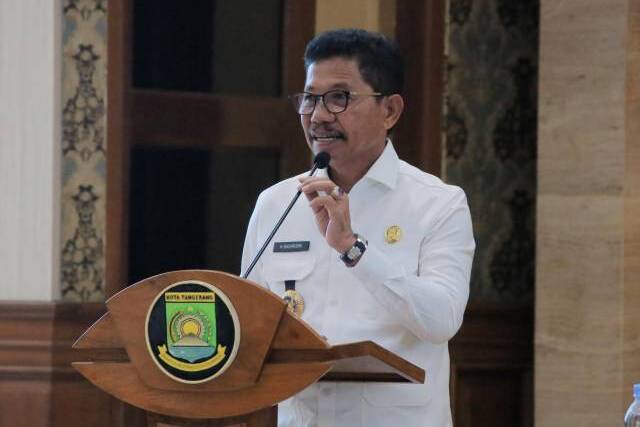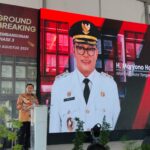TANGERANG – The Mayor of Tangerang, H. Sachrudin, emphasized the importance of ensuring that all buildings in the city are not only visually appealing but also legally compliant and technically safe. He made this statement during the Socialization Event for Building Approval (PBG) and Certificate of Occupancy (SLF), held at the Akhlakul Karimah Hall in the Tangerang City Government Center on Wednesday.
Addressing 154 participants from various business sectors—including housing developers, hospitality, offices, construction services, and healthcare facilities—Sachrudin stressed that urban planning cannot be done partially. Instead, it requires collaboration between the government and the community, particularly businesses directly involved in the city’s physical development.
“Building legality is not just an administrative document but a legal and technical guarantee that the structure is safe for occupants and the surrounding environment. This is our shared responsibility,” said Sachrudin.
As part of public service innovation, the Tangerang City Government continues to develop licensing services through legal approaches and digital technology, such as the Building Management Information System (SIMBG). This system enables online submission and issuance of Building Approvals (PBG) and Certificates of Occupancy (SLF), making the process faster, more transparent, and efficient.
By mid-2025, the Tangerang City Government had issued 4,965 PBGs and 166 SLFs. Since the introduction of expedited services in 2024, the processing time for PBGs for simple structures was reduced from 45 days to just 10 hours. This reflects the government’s commitment to effectively and adaptively meeting business and community needs.
“Through this socialization event, the City Government hopes all development in Tangerang will comply with regulations, support orderly spatial planning, and create a safe, organized, and investment-friendly city,” Sachrudin added.
The mayor further stated that this event serves as both education and an invitation for businesses to become strategic partners in achieving orderly, sustainable urban planning and fostering a healthy investment climate.
“We urge all businesses to actively contribute to creating a well-regulated urban environment that prioritizes public safety. This is not just about permits but also social responsibility,” concluded the Mayor of Tangerang.
Echoing the mayor’s sentiments, the Deputy Mayor of Tangerang, H. Maryono Hasan, expressed hope that through this event and the various innovations introduced by the City Government, collaboration between the government, community, and businesses will strengthen, making Tangerang a livable and investment-ready city.





